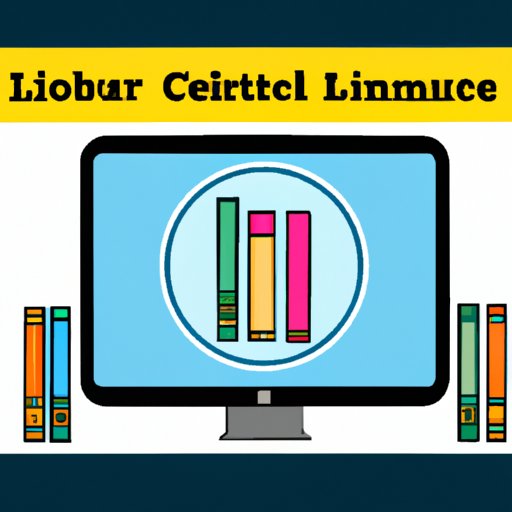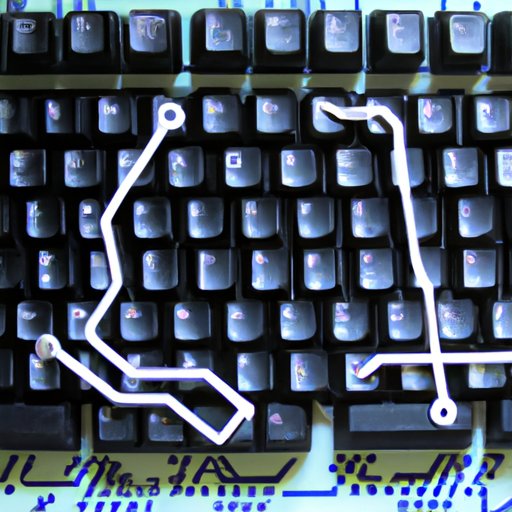Introduction
A library science degree is an academic credential that prepares graduates for a variety of careers within the field of library and information sciences. This degree provides students with the knowledge and skills necessary to support libraries, manage library resources, develop digital content, teach library science courses, pursue a career in information technology, and work in the publishing industry. In this article, we will explore what you can do with a library science degree and the potential career paths available.
Become a Librarian
One of the most popular career paths for library science degree holders is to become a librarian. Librarians are responsible for organizing and managing library collections, providing reference services, creating library policies, and organizing library programming. According to the U.S. Bureau of Labor Statistics, librarians earn a median annual salary of $59,050 and employment of librarians is projected to grow by 9 percent from 2019 to 2029.
In order to become a librarian, individuals must possess a master’s degree in library science from an ALA-accredited program. Additionally, librarians must have strong organizational, communication, and interpersonal skills, as well as the ability to stay up-to-date on trends in library science. Those who pursue a career as a librarian will also enjoy a variety of benefits, including paid vacation days, health insurance, and retirement plan options.

Create Library Programs and Events
With a library science degree, individuals may also create library programs and events. These programs and events may include book clubs, author talks, movie nights, and other activities designed to engage the community in the library. Creating these types of programs requires strong organizational skills, as well as the ability to promote the event and engage the community. Additionally, library science degree holders may be responsible for planning, executing, and evaluating library programs and events.
Manage Library Resources
Library science degree holders may also be responsible for managing library resources. This includes cataloging and classifying library materials, such as books, magazines, videos, and other resources. Additionally, library science degree holders may be responsible for acquiring and maintaining library resources, which may involve ordering books, updating library databases, and organizing library materials.

Develop Digital Content for Libraries
With advancements in technology, library science degree holders may also be responsible for developing digital content for libraries. This may include creating online databases, designing interactive websites, and developing digital materials, such as eBooks, audio books, and podcasts. Additionally, library science degree holders may utilize technology to enhance library services, such as implementing automated circulation systems and self-checkout machines.
Teach Library Science Courses
Those with a library science degree may also pursue a career in academia by teaching library science courses. To teach library science courses, individuals must possess a master’s degree in library science or a related field. Additionally, they must have strong teaching skills, as well as the ability to develop engaging lesson plans and materials. Teaching library science courses may also require individuals to utilize technology to enhance their teaching strategies and tools.

Pursue a Career in Information Technology
With the increasing intersection of library science and information technology, library science degree holders may pursue a career in information technology. This may involve designing and developing software applications, managing networks and databases, and creating data visualizations. Additionally, individuals may work as web developers, system administrators, and database administrators. To pursue a career in information technology, individuals must possess a bachelor’s degree in computer science or a related field.
Work in the Publishing Industry
Finally, those with a library science degree may also pursue a career in the publishing industry. This may involve working as a publisher, editor, or author. Additionally, individuals may work as a acquisitions librarian, which involves selecting books and other materials for libraries. Working in the publishing industry requires strong writing and editing skills, as well as the ability to understand the relationship between libraries and publishers.
Conclusion
A library science degree can open the door to a variety of career paths. From becoming a librarian to pursuing a career in information technology or the publishing industry, there are many opportunities available to those with a library science degree. With the right education and experience, individuals can find a fulfilling career in the field of library and information sciences.
(Note: Is this article not meeting your expectations? Do you have knowledge or insights to share? Unlock new opportunities and expand your reach by joining our authors team. Click Registration to join us and share your expertise with our readers.)
